2021-22 Year in Review



$1.94

Year over year, it is clear that the work that CCOVI is doing to support and grow Canada’s grape and wine industry has a notable impact. Since the Institute’s establishment in 1996 to date, we remain grateful to have the opportunity to work alongside our valued partners and stakeholders to identify industry priorities and work together to achieve our collective goals.
Whether it is through our leading edge-research, outreach programs for knowledge mobilization, community engagement initiatives or professional development opportunities, grounding the Institute’s activities in the pillars of quality, innovation and sustainability has helped raise the profile of Canadian wine on a global scale.
While the COVID-19 pandemic continued to present challenges to the way that we conduct research, teach, serve our clients and engage with our community, we remained flexible and persisted by adapting practices and procedures as necessary. These pivots allowed us to safely continue the important work we do for our industry and community on a local, national and international level.
Some of our current research projects include the development of micro-shoot tip tissue culture-based protocols for maintaining virus-free grapevine germplasm for elite and local varieties; tannin management to improve red wine quality and consumer acceptance; exploring unique cover crops, rootstocks and irrigation techniques for Canadian vineyards; the use of portable, Sensor-based Hyperspectral Imaging System (SHIMS) for early detection of grapevine viruses; and improving freeze tolerance of Vitis under a changing climate.
Our industry outreach programs also continue to be in high demand, with over 2,700 industry and community members participating in our programs this past year. The Grapevine Virus Testing Lab completed more than 16,000 virus tests for clients and research purposes, while the Analytical Services department processed more than 1,100 work orders. CCOVI’s commitment to community engagement also remained an

important priority. As we were unable to host any in-person workshops, seminars or conferences due to continued pandemic restrictions, CCOVI continued to provide virtual offerings, including the CCOVI Lecture Series.
As the Institute has grown our high-quality continuing education offerings have evolved to meet ever-changing demands. We offer a continually expanding range of studies in wine, spirits, cider and perry production as professional development opportunities for the industry. This year, CCOVI forged ahead with online course offerings, which saw continued success.
As the Canadian cool climate grape and wine industry continues to evolve and grow, we look forward to further collaboration with our partners and stakeholders in the years to come. While there will most certainly be new challenges to navigate, we remain committed to working closely with the industry who helped to shape the Institute, in order to develop creative and innovative solutions and strategies to drive the Canadian grape and wine industry forward.
Best regards,
 Debbie Inglis
Debbie Inglis
The Cool Climate Oenology and Viticulture Institute (CCOVI) at Brock University was founded in partnership with industry in October of 1996 and continues with those partnerships through the Grape Growers of Ontario, Ontario Craft Wineries and Wine Growers Ontario.
Our internationally recognized research institute is dedicated to supporting the growth of the Canadian grape and wine industry and advancing cool climate winemaking globally.
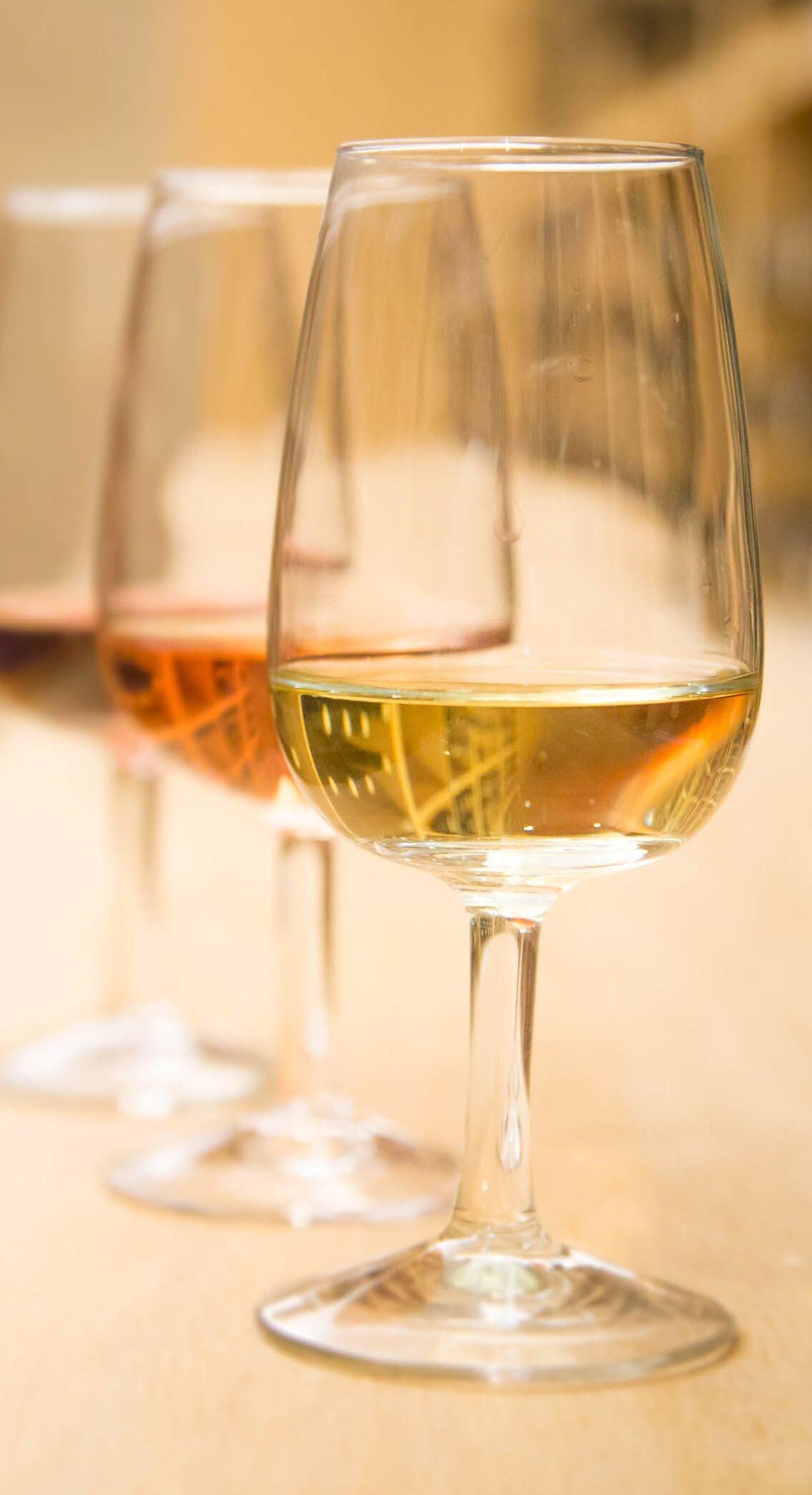
CCOVI’s research, education and outreach activities are based on three pillars – quality, innovation and sustainability. Our key responsibilities include:
• Engaging in leading edge research programs in cool climate viticulture, oenology, wine business, wine tourism and wine culture targeted at industry priorities.
• Providing continuing education, professional development opportunities and outreach services for the grape and wine community and the community at large, in order to facilitate the advancement of the industry.
• Training highly qualified personnel for the industry through the Brock oenology and viticulture (OEVI) undergraduate programs and graduate research programs at the MSc, MA and PhD levels conducted under CCOVI auspices.
CCOVI’s partnerships extend to other academic communities, federal and provincial government research organizations, regional grape and wine industry associations within Canada and in other cool climate wine regions across the globe.
For over 25 years, the continued support from industry partners has been critical to the growth and development of the Institute.
As Brock University’s flagship multidisciplinary research institute, CCOVI consistently demonstrates the power of partnership between industry and academia to achieve common objectives.

As the Institute evolves, CCOVI continues to expand its research focus beyond the disciplines of oenology and viticulture to all aspects of the grape and wine valuechain. CCOVI’s research initiatives are focused on the priorities that have been identified by the industry itself, responding to industry challenges by developing innovative solutions, identifying new growth opportunities and accelerating the commercialization of globally competitive products and services.

• Early detection of grapevine viruses in young and asymptomatic grapevines using portable, Sensor-based Hyperspectral Imaging System (SHIMS)
• Development of micro-shoot tip tissue culture-based protocols for maintaining virus-free grapevine germplasm for elite and local varieties
• Unique Cover Crops, Rootstocks and Irrigation Techniques for Canadian Vineyards
• Mobilizing knowledge for the Adoption of BMPs in Ontario’s Horticulture Sector
• Isolation of natural yeasts from commercial wine fermentations
• CLEan plAnt extractioN SEquencing Diagnostics (CLEANSED) for Clean Grapevines in Canada
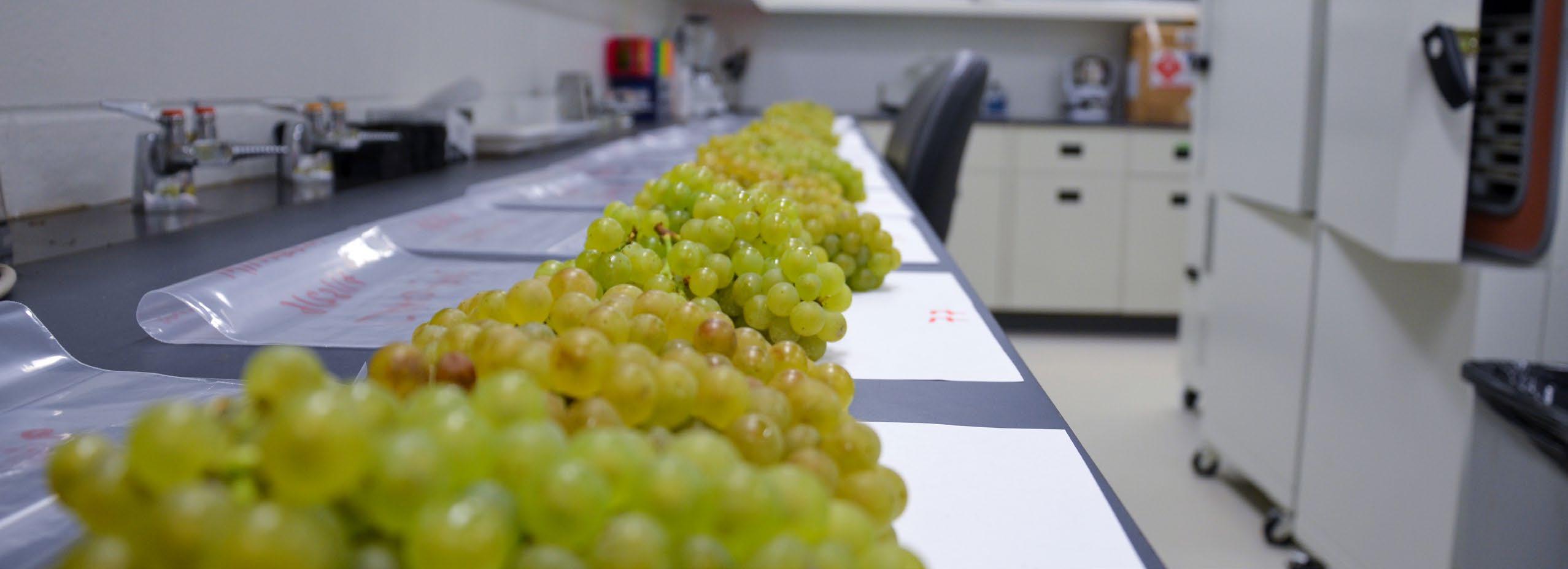
• Field evaluation of a weather-based model for timing fungicide treatments for grapevine fungal diseases
• Spotted lanternfly monitoring and risk assessment
• Development of NGS-based multiplex assay for nonregulated grapevine viruses
• Grapevine Evaluation and cold hardiness program to ensure superior plant material for the Canadian Grapevine Certification Network and to improve the sustainability of the Canadian grape and wine industry
• Improving sparkling and still wine quality: preventing high volatile acidity, honey off-flavour and other faults that reduce wine quality through natural Canadian indigenous yeast isolates
• TanninAlert: Improving Ontario red wine quality and consumer acceptance
• Grapevine virus and virus vector control
• Magic of mushrooms: Innovative use of mycelium composite derived from pink oyster mushrooms (Pleurotus djamor) for mycofiltration of grape juice and wine
• Elucidation of the cold-hardiness signaling and hormonal pathways induced by an ABA analog in Merlot
• Improving freeze tolerance of Vitis under a changing climate
• Characterisation and implications of the thermal tasting phenotype
• Redox balance in wine yeast under hyperosmotic stress and the relation to wine quality
• Investigating the impact of sugar and nitrogen on Maillard Reaction-associated (MR) flavours in sparkling wine
As an industry-driven research institute, CCOVI is committed to ensuring that research is shared both academically and with local, national and international stakeholders. The Institute’s work is shared through the publication and dissemination of research through both proactive and reactive media relations.
Research is communicated formally through published books, book chapters and journal articles, as well as through conference proceedings worldwide. As part of CCOVI’s outreach activities, researchers also share their work through participation at industry meetings, webinars, events and media interviews.
Throughout the 2021-22 year, Brock-affiliated CCOVI researchers published 11 academic publications focused on a wide range of grape and wine-related topics. In addition to the research presented as part of the 2021 CCOVI Lecture Series at Brock University, CCOVI researchers also presented their findings at 22 conference presentations around the world.
CCOVI has also continued to utilize social media as a channel of communication and knowledge mobilization for the grape and wine industry and broader community. CCOVI increased the number of followers on its Instagram, Facebook and Twitter accounts to more than 4,200 people, showcasing the Institute’s ongoing commitment to increasing its reach and connecting with industry and community members across a range of platforms.
The Institute was also featured in 45 print media and broadcast news stories that highlighted CCOVI’s research and activities.
Highly qualified personnel (HQP) working in CCOVI play an important role in advancing the progress of the Institute’s research work. CCOVI Researchers, Scientists and Fellows lead dynamic teams and lab groups that they mentor, train and develop. A total of 58 HQP were trained over the 2021-22 fiscal year.

The high calibre of talent in these teams is validated by the external recognition they have received this fiscal year, including the American Society of Enology & Viticulture (ASEV) 2021 ASEV Presidents’ Award for Scholarship in Viticulture and Best Student Viticulture Poster at the 2021 ASEV-Eastern Section conference. Students also represented the Institute at ASEV’s annual conferences.
The Institute was also represented by its highly qualified personnel at several virtual academic presentations including the 2022 Ontario Fruit & Vegetable Convention, the NZOZ 2022 Sensory and Consumer Science Symposium and Macrowine 2021.
Highly PersonnelQualified (HQP)
In 2021-22, CCOVI’s innovative ideas led to the Institute securing funding that will keep it at the forefront of developments in cool climate grape and wine research. Brock researchers associated with CCOVI received $ 1,945,340 in government and industry support in 2021-22.

$1,281,818 came from government for projects done in collaboration with industry, while industry themselves contributed $278,065 in cash and $253,107 in kind for projects. Projects funded by government that did not involve industry partners totaled $132,350.
Over the past five years, the Institute has received more than $10.5 million in government and industry support.
As an industry-leader in cool climate wine research, CCOVI has research partners both at home and abroad. The Institute’s researchers further establish and develop new opportunities through the professional organizations they belong to.
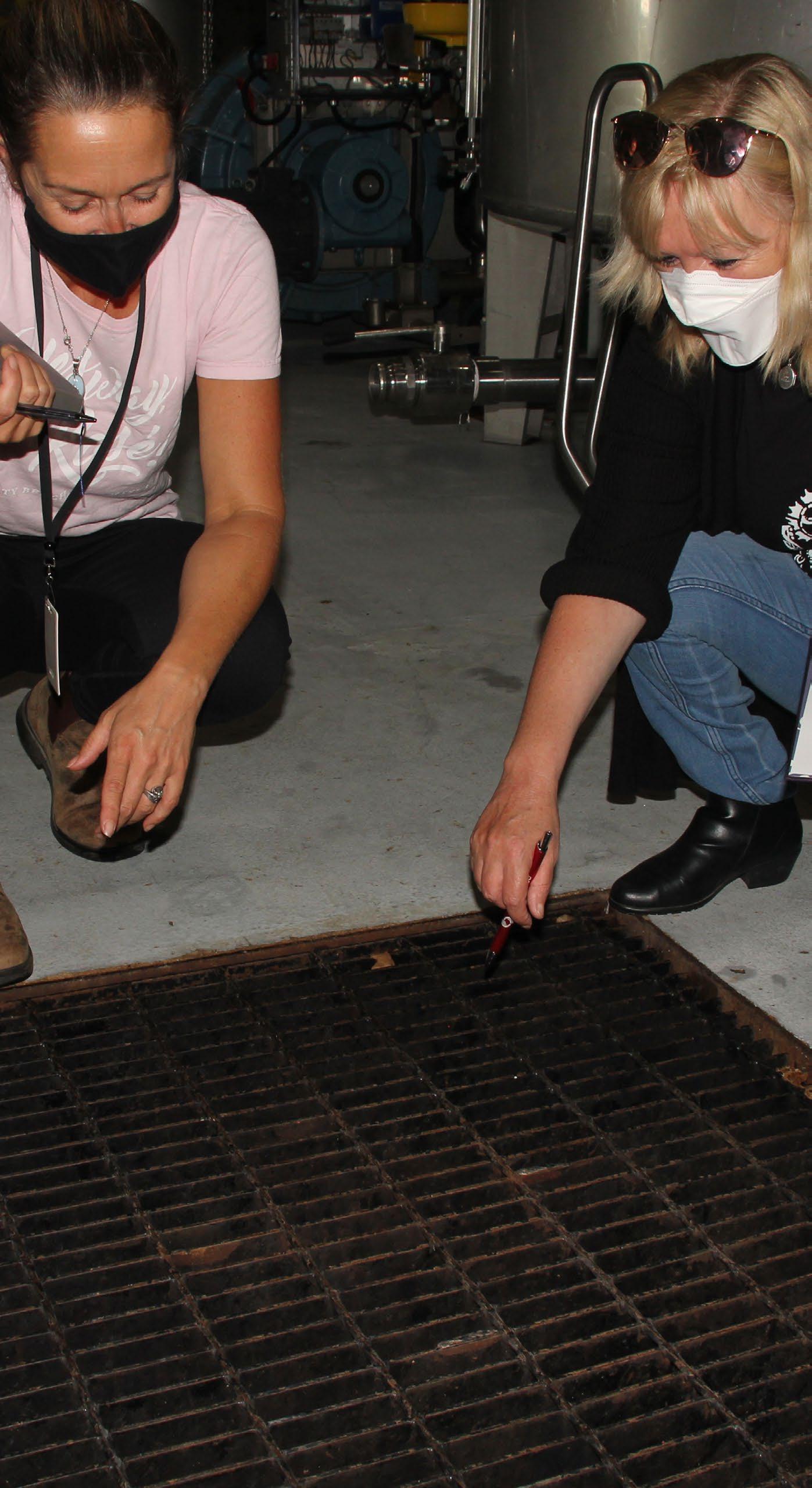
CCOVI leads provincial grape and wine initiatives and works closely with national partners to address Canada’s national priorities. This work takes a coast-to-coast approach, linking research and researchers from Atlantic Canada, Quebec, Ontario and British Columbia. As part of this national approach, CCOVI has formal Memorandum of Understandings to work cooperatively with Agriculture and Agri-Food Canada (AAFC), the Canadian Food Inspection Agency (CFIA) and the Canadian Grapevine Certification Network (CGCN) to advance Canada’s grape and wine sector. These networks use knowledge and technology transfer of research outputs to help strengthen the $11-billion economic impact of the sector nationally.
CCOVI Researchers, Scientists and Fellows are active members of respected professional networks such as the American Society of Enology and Viticulture, the Academy of Wine Business Research and the American Association of Wine Economists. These networks help researchers raise the profile of both the Institute and their work in international academic circles, while making and maintaining connections for future research partnerships.
Research helps strengthen the economic impact of the grape and wine sector grapes$11 billion
CCOVI plays a critical role in the growth and sustainability of Canada’s grape and wine industry through its innovative outreach programs. This includes services that help growers and winemakers make informed decisions in their operations, as well as workshops, seminars and conferences that focus on knowledge mobilization and technology transfer.
In 2021-22, more than 2,000 industry professionals took part in or utilized CCOVI’s outreach programs and services. Through close collaboration with the industry, CCOVI continues to develop and adapt its programs and services to meet the shifting needs of the industry.

CCOVI’s Analytical Services lab is a full-service facility that offers a wide range of standard analytical services to the grape and wine, cider, beer and distillery industries. The juice, wine and alcoholic beverage analysis lab fills a void in available services in Canada and provides clients with timely service at competitive rates. The services offered by the lab continue to expand year-over-year and are continually evolving to serve the needs of its growing client base across the industry.
CCOVI also conducts research projects for clients, utilizing the Institute’s expertise to help analyze client data and assist in project design in a confidential environment.
Along with providing support to CCOVI researchers, the department also acts as the third-party dispute resolution facility for grape analysis at harvest on behalf of the Grape Growers of Ontario.
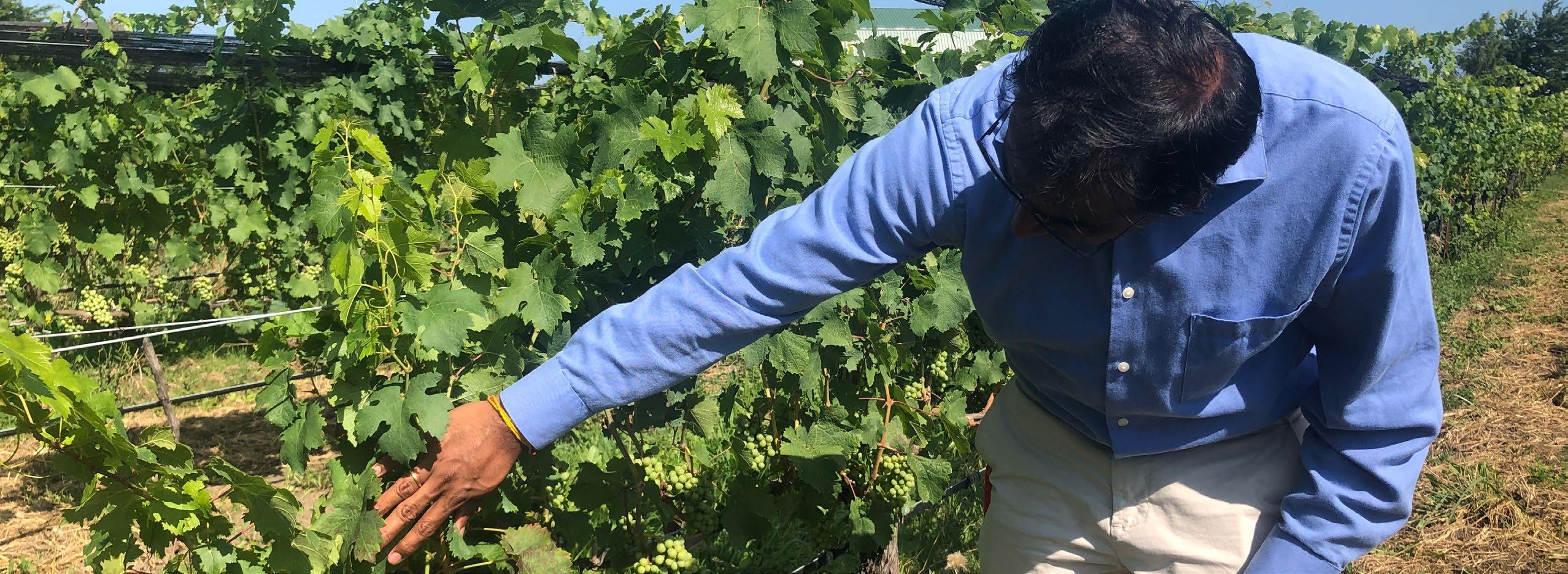
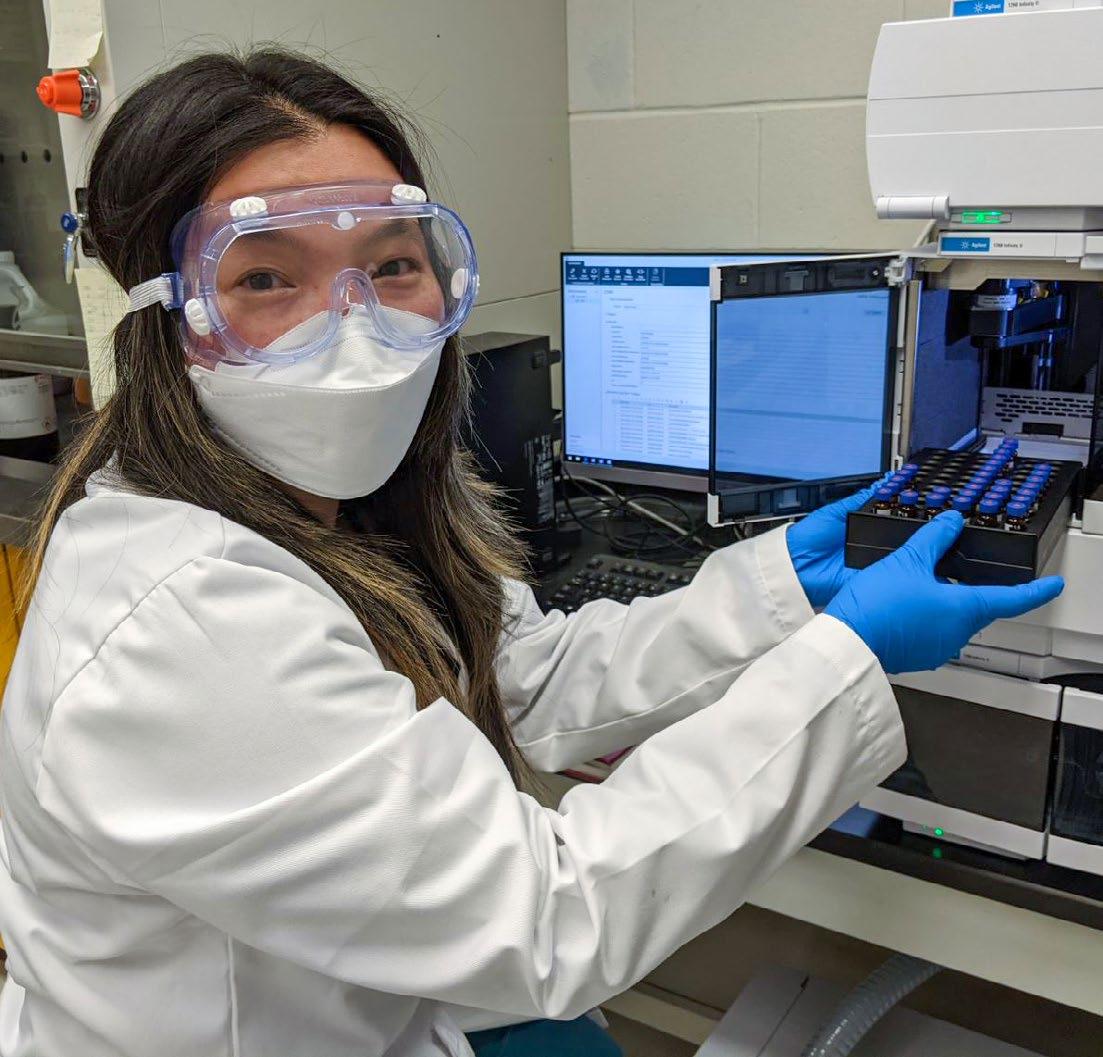
Since 2010, CCOVI’s Preharvest Monitoring has been tracking the progress of Niagara’s wine grape harvest. Using data obtained at four sites per variety across the Niagara peninsula, the program tracks key fruit ripeness indicators for Chardonnay, Riesling, Pinot noir, Cabernet sauvignon and Cabernet franc. This data is made readily available to the industry through an interactive online database (ccovi.ca/preharvest) that allows users to compare varieties and vintages at different sites across
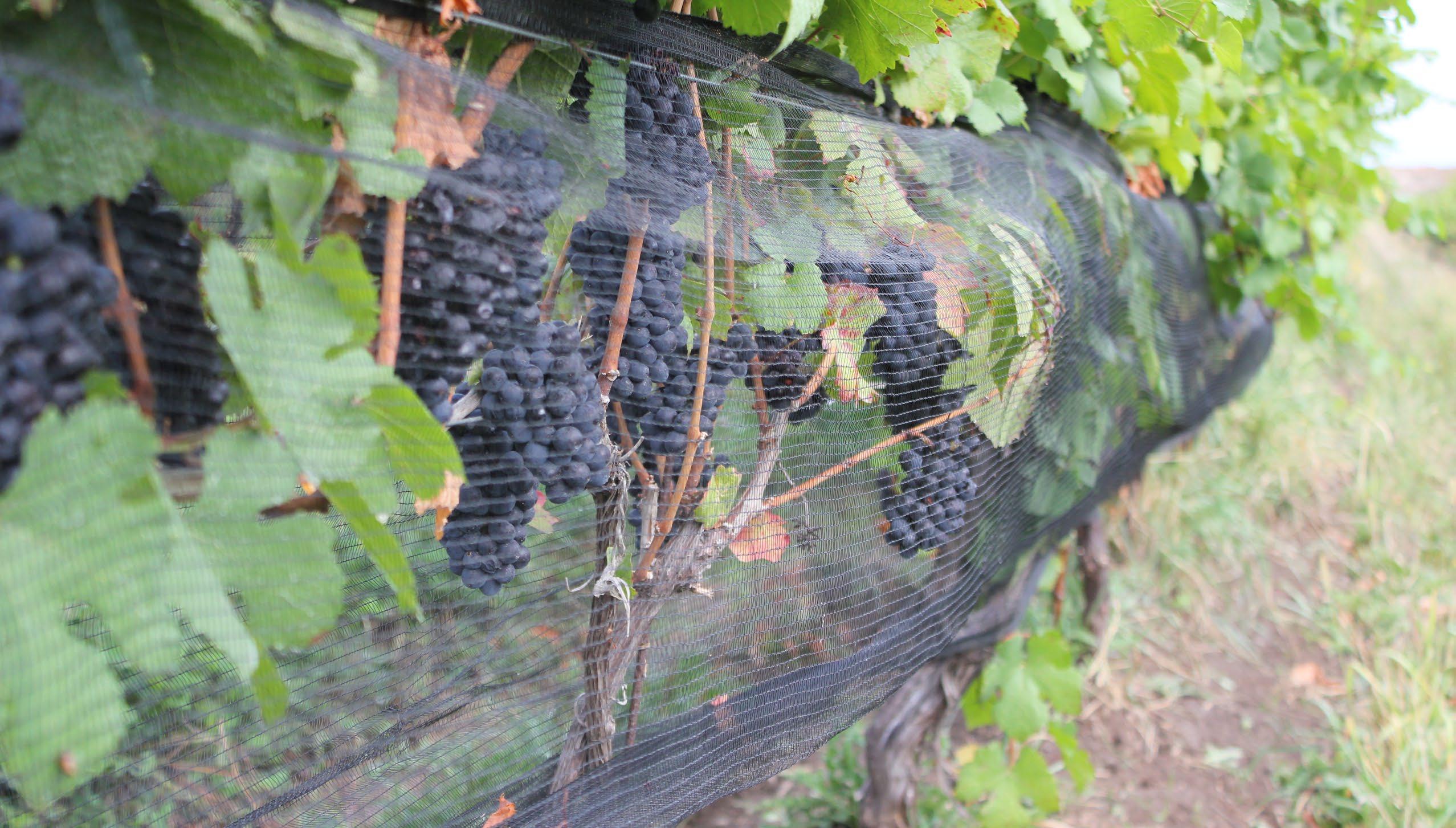
the region. This allows users to put the data into context by comparing current numbers to previous harvests to make informed vineyard management decisions.
During the 2021 harvest, the database received 832 page views with people in 12 countries checking in to see how Niagara’s harvest was progressing.
VineAlert is one of the Institute’s flagship outreach programs and operates in collaboration with the Grape Growers of Ontario and Ontario Grape and Wine Research Inc.
It tracks the cold hardiness of grapevines throughout the dormant period in the province’s three designated growing regions: the Niagara Peninsula, Lake Erie North Shore and Prince Edward County. That data is then used as an early warning system that alerts growers to turn on wind machines or take other precautionary measures to mitigate potential damage from extreme weather events.
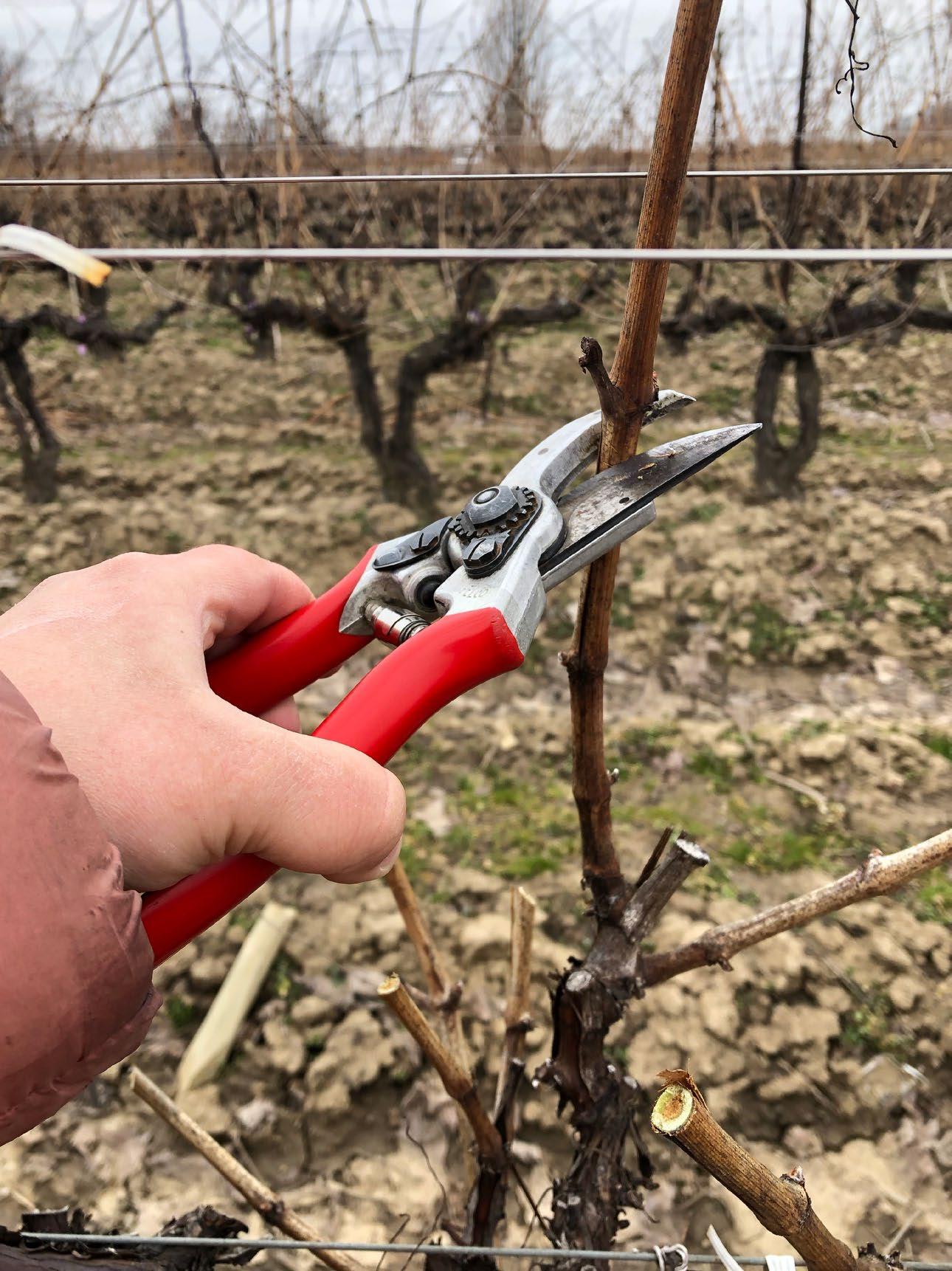
The alert system has 515 subscribers that generated more than 6800 page views of the program’s data in 2021-22. In addition to assisting Ontario growers, the online cold hardiness database (ccovi.ca/vinealert) has been of interest to researchers and growers around the world, with users in 36 countries looking at VineAlert’s data.
Launched in 2010, VineAlert was selected by the Council of Ontario University’s Research Matters campaign in 2016 as one of 50 ‘game-changing’ research partnerships between industry and universities. This recognition, and the overall success of the VineAlert program, illustrates how CCOVI’s strong industry partnerships advance research and innovation while simultaneously overcoming challenges identified by the industry.
Grapevines are susceptible to many virus and virus-like agents that can negatively impact the health and quality of grapevine and its products. Detection is the first step in the management of grapevine virus diseases.
CCOVI offers highly sensitive and accurate molecular virus diagnostics through its virus testing services to help manage the health status of grapevines. CCOVI operates the national testing platform for the Canadian grape and wine cluster program funded through the Agriculture and Agri-Food Canada’s Canadian Agricultural Partnership program administered through CGCN.

In 2021-22, more than 16,000 grapevine virus tests were performed at CCOVI.
Our ongoing research and testing assist in the management of these diseases through dissemination of science-based knowledge, innovation and collaborations to serve the Canadian grape and wine industry.
Over 16,000 grapevine virus test performed
CCOVI’s workshops, conferences and lectures facilitate knowledge translation and technology transfer by connecting industry partners to experts who speak about timely and relevant topics.
Due to ongoing COVID restrictions, CCOVI was unable to host in-person workshops, conferences, lectures or other large events. CCOVI continued to innovate its programming over the past year to facilitate valuable knowledge translation opportunities and new partnerships and initiatives to support the industry in engaging, new ways.
The 2021 CCOVI Lecture Series ran from January to April and featured 10 lectures presented by CCOVI Researchers, Scientists, Fellows, Professional Affiliates and their collaborators. Topics spanned the entire grape and wine value chain including lectures on advances in grapevine certification standards, cold hardiness research, consumer insights on Ontario sparkling wine and other local wines, sustainable management of leafhopper pests of grapevines and augmented reality marketing in the wine industry.
Due to ongoing COVID-19 restrictions, the CCOVI Lecture Series was once again held in a virtual format. Despite the inability to host the lectures in person, 363 people from around the world still tuned in to stream the lectures live online.
Archived lecture series videos from previous years also continued to remain popular online, receiving 1,571 views in 2021 from people around the world.

Over 13,000 Lifetime YouTube views to CCOVI Lecture Series videos
As COVID-19 restrictions continued to prevent in-person gatherings, CCOVI hosted a virtual wine pairing experience for alumni as part of Brock’s 2021 Homecoming. The virtual tasting featured OEVI graduate Lawrence Buhler (BSc ’03), Winemaker at Henry of Pelham Family Estate. Buhler led 18 alumni participants through a flight of three wines paired with three delicious meat selections from Piller’s Fine Foods.

Due to ongoing COVID-19 restrictions community events such as the NIAGARA WINE FESTIVAL Cuvée Grand Tasting and i4C were postponed or canceled.
CCOVI’s profile and strong relationships with stakeholder groups nationwide helped secure Canada’s first-ever bid to host the International Cool Climate Wine Symposium (ICCWS).


Leading researchers, winemakers and grape growers from around the world were set to gather at Brock University in the summer of 2021 for the 10th instalment of the symposium, however due to the continued uncertainty and risk to health and safety from COVID-19, the conference was postponed to July 17 to 21, 2022.
The wide range of programming at ICCWS will serve to examine how adversity drives innovation to achieve success across the entire value chain of the grape and wine industry. Organizers look forward to bringing engaging and innovative programming to an international audience.
Conference delegates will participate in dynamic sessions as well as pre-and-post conference programming that will showcase Canada’s wine regions from coast-to-coast. The full conference program can be viewed at iccws2022.ca/program.
CCOVI is collaborating with local and national stakeholders to showcase Canada’s outstanding wine industry to the world. The keynote speaker for the symposium is Dr. Monika Christmann, a German oenology professor and Head of the Department for Oenology and Wine Technology and Winery at the Hochschule Geisenheim University. She also serves as the Honorary President for the International Organisation for Vine and Wine.
To highlight Canadian cool climate chardonnay during the conference, 12 Niagara winemakers have used grapes from two specific vineyards to produce their own unique, one-of-a-kind Chardonnays. The Great Chardo Swap involves six winemakers from east of the Welland Canal making wine from grapes grown on the west side of the canal, and six winemakers from the west side making wine from grapes grown on the east. All wines crafted as part of this initiative will be part of a grand tasting at ICCWS, and attendees will have the chance to discuss the decisions made by the winemakers at each stage of the process.
Learn
With CCOVI’s resources, Brock is uniquely positioned in Canada to offer undergraduate, graduate and certificate programs in Oenology and Viticulture (OEVI). Although CCOVI does not administer the degree programs, the Institute has close ties to how they operate. CCOVI also offers education sessions and volunteer opportunities to students and supports alumni with professional development after graduation.
For the 2021-22 academic year, there were 34 students studying at the undergraduate level. Of those students, 30 were registered in the Honours BSc degree program while four were taking the Certificate in Grape and Wine Technology.
At the graduate level, CCOVI Researchers, Scientists and Fellows train students in the fields of oenology and viticulture, wine business and geography. During this period, there were 20 students pursuing master’s degrees and seven students pursuing their PhD in grape and wine related fields.
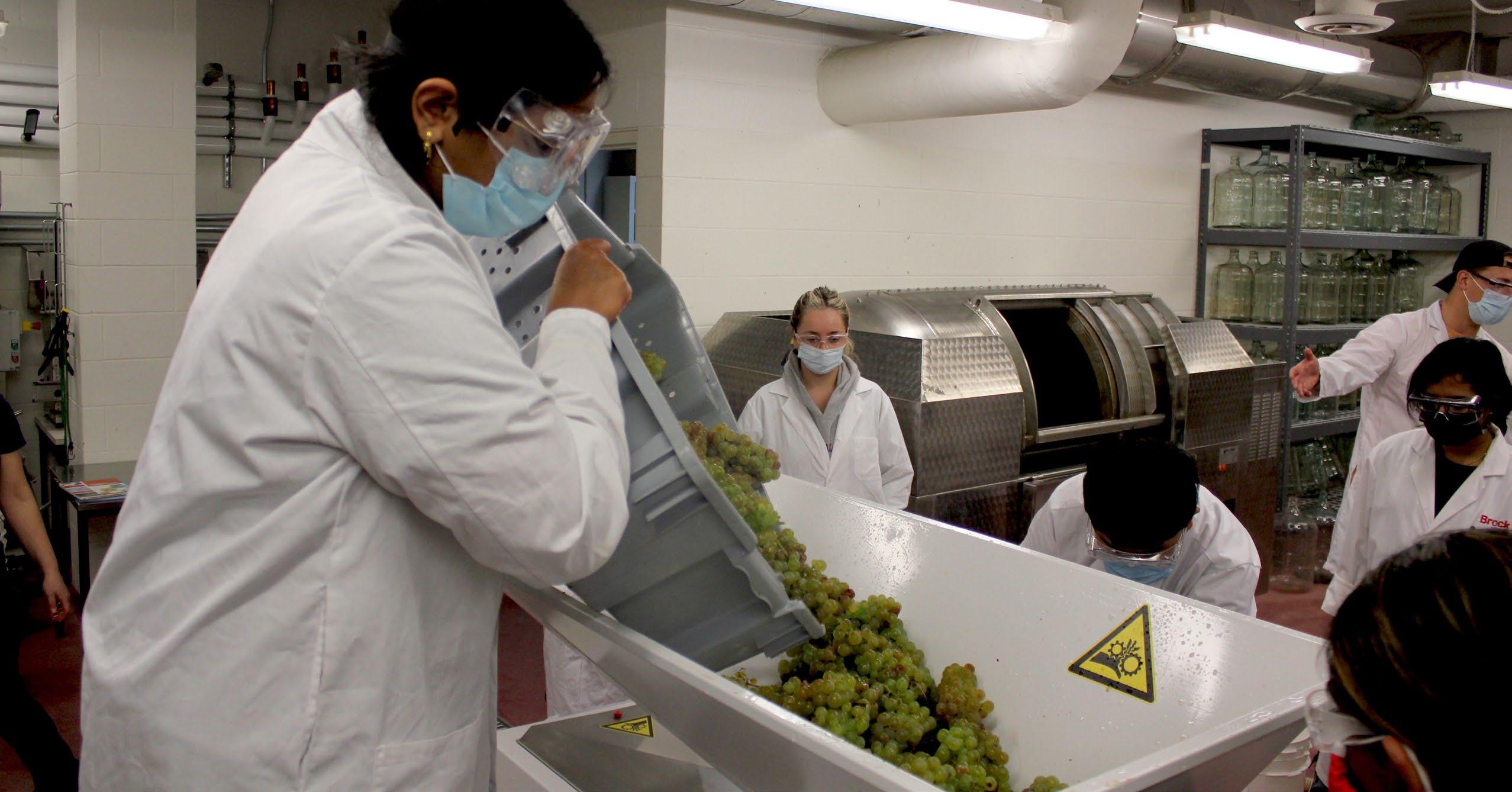
34 undergraduate students
30 Honours BSc degree program
4 Certificate in Grape and Wine Technology
CCOVI provides education opportunities for wine enthusiasts as well as professional development courses for the industry. In 2021-22, CCOVI offered 11 courses that instructed 362 students.
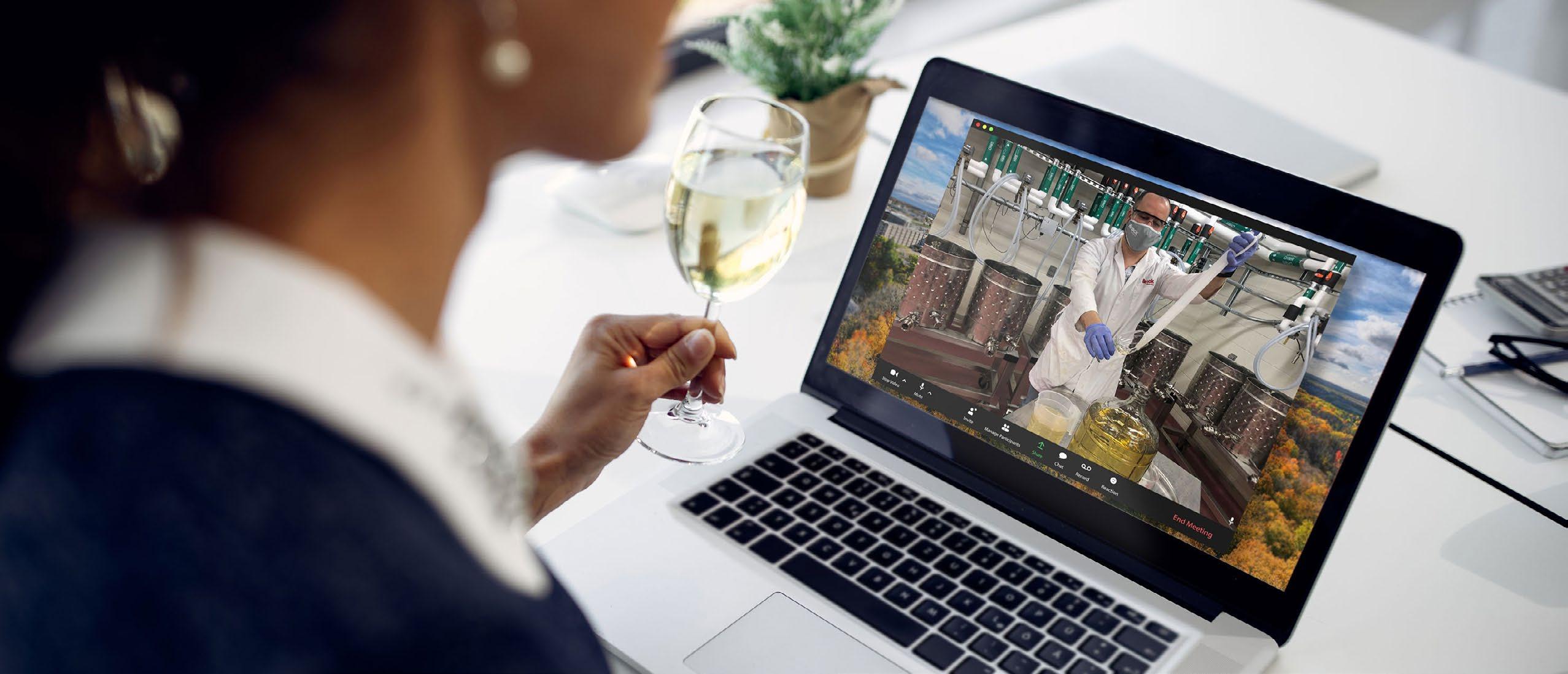
As a program provider for the Wine & Spirit Education Trust (WSET) program, a highly respected and internationally transferable wine certification, the continuing education program attracts students from around the world to take part in sessions offered both in-class and online. As the COVID-19 pandemic continued to delay the ability to host in-person learning, CCOVI worked closely with the WSET to provide online offerings for its students to be able to access its range of popular wine and spirits courses, which saw continued growth
in registrations. CCOVI continued to provide examinations through Remote Invigilation (RI) technology this year, enabling candidates to safely sit their exam on a computer from their home.
CCOVI’s Certificate in Ontario Wine, the wine industry’s first integrated online program specific to Ontario wine, also continued to grow. The course has been offered more than a dozen times since launching in 2019 and continues to be an important part of CCOVI’s continuing education lineup and aids in raising awareness about the Ontario wine industry in the process.
Tim Kenyon Chair, Vice-President of Research, Brock University
Allan Jackson Industry representative, CCOVI Advisory Council
Allan Schmidt Industry representative, Ontario Craft Wineries
Matthias Oppenlaender Industry representative, Grape Growers of Ontario and Ontario Grape and Wine Research Inc.
John De Sousa Wine Growers Ontario

Don Cyr CCOVI Fellow, Brock University
Debra Inglis Ex-officio, CCOVI Director
Barb Tatarnic Chair, CCOVI manager of outreach and continuing education
Belinda Kemp CCOVI oenologist
Jim Willwerth CCOVI researcher
Sudarsana Poojari CCOVI virologist
Kevin Ker CCOVI research associate
Kevin Buis Industry representative, Grape Growers of Ontario
Jamie Evans Industry representative, Ontario Craft Wineries
Gerald Klose Industry representative, Wine Growers Ontario
Daniel Speck Industry representative, Ontario Craft Wineries
Sue Ann Staff Industry representative, Ontario Craft Wineries
Colin Stanners Industry representative from a grape and wine region outside of Niagara
Dan Sullivan Industry representative from a grape and wine region outside of Niagara
Roger Vail Industry representative, Wine Growers Ontario
Kevin Watson Industry representative, Grape Growers of Ontario
Scott Wilkins Industry representative from a grape and wine region outside of Niagara
Debra Inglis Ex-officio, CCOVI Director
Allan Jackson Chair, Industry representative
Allan Schmidt Industry representative, Ontario Craft Wineries
Len Pennachetti Industry representative, Ontario Craft Wineries
Ed Madronich Industry representative, Ontario Craft Wineries
Richard Linley Industry representative, Ontario Craft Wineries
Klaus Reif Industry representative, Ontario Craft Wineries
Eleanor Hawthorn Industry representative, Grape Growers of Ontario and Ontario Grape and Wine Research Inc.
Matthias Oppenlaender Industry representative, Grape Growers of Ontario and Ontario Grape and Wine Research Inc.
Bill Schenck Industry representative, Grape Growers of Ontario
Debbie Zimmerman Industry representative, Grape Growers of Ontario
Erwin Wiens Industry representative, Grape Growers of Ontario
Aaron Dobbin Industry representative, Wine Growers Ontario
Del Rollo Industry representative, Wine Growers Ontario

Doug Hernder Industry representative, Wine Growers Ontario
John De Sousa Industry representative, Wine Growers Ontario
Rob Enns Industry representative, Wine Growers Ontario
Dan Paszkowski Industry representative, Wine Growers Canada
Tania Humphrey Industry representative, Vineland Research and Innovation Centre
Eugene Jaworski Government representative, Agriculture and Agri-Food Canada
George Soleas Government representative, Liquor Control Board of Ontario
Jen Liptrot Government representative, Ontario Ministry of Agriculture, Food and Rural Affairs
Laurie Macdonald Regulatory agency representative, VQA Ontario
Craig Youdale Education representative, Canadian Food and Wine Institute, Niagara College
Rene Van Acker Education representative, Dean of the Ontario Agricultural College, University of Guelph
Lynn Wells Brock Representative, Vice-President, Academic and Provost
Tim Kenyon Brock representative, Vice President, Research
Gary Pickering Brock representative, CCOVI Researcher
Don Cyr Brock representative, CCOVI Fellow
Barb Tatarnic CCOVI representative, Manager of Outreach and Continuing Education
Debra Inglis Ex-officio, CCOVI Director
Debbie Inglis CCOVI Director, Associate Professor, Biological Sciences
Gary Pickering Professor, Biological Sciences
Jim Willwerth Assistant Professor, Biological Sciences
Belinda Kemp Senior Scientist in Oenology

Sudarsana Poojari Senior Scientist in Grapevine Virology
Ralph Brown Professor, School of Engineering, University of Guelph
Don Cyr Professor, Goodman School of Business, Brock University
Dirk De Clercq Professor, Goodman School of Business, Brock University
Vincenzo De Luca Professor, Biological Sciences, Brock University
Charles Després Associate Professor, Biological Sciences, Brock University
Ronald Jackson Sensory Science, University of Manitoba
Lester Kwong Associate Professor, Social Sciences, Brock University
Amy Lemay Post-doctoral Fellow, Niagara Community Observatory, Brock University
Antonia Mantonakis Professor, Goodman School of Business, Brock University
Baozhong Meng Associate Professor, Department of Molecular and Cellular Biology, University of Guelph
Annette Nassuth Associate Professor, Molecular and Cellular Biology, University of Guelph
Michael Ripmeester Professor, Social Sciences, Brock University
Joachim Scholz Assistant Professor, Goodman School of Business, Brock University
Tony Shaw Professor Emeritus, Social Sciences, Brock University
Jeffrey Stuart Professor, Biological Sciences, Brock University
Narongsak (Tek) Thongpapanl Professor, Goodman School of Business, Brock University
George van der Merwe Associate Professor, Molecular and Cellular Biology, University of Guelph
Liette Vasseur Professor, Biological Sciences, Brock University
Carl Bogdanoff Viticulturist, AAFC’s Summerland Research and Development Centre

Pat Bowen Viticulture research scientist, AAFC’s Summerland Research and Development Centre
Linda Bramble Wine writer, author and educator
Janet Dorozynski Trade Commissioner, Wine, Beer & Spirits, Global Affairs Canada
Kevin Ker Viticulture consultant
Tom Lowery Entomology research scientist, AAFC’s Summerland Research and Development Centre
Alexandra Mayeski Lawyer, Mayeski Mathers LLP
Wendy McFadden-Smith Horticulture IPM Specialist, Ontario Ministry of Agriculture, Food and Rural Affairs
Daniel O’Gorman Research biologist, AAFC’s Summerland Research and Development Centre
Justin Renkema Research Scientist, AAFC’s Vineland Research and Development Centre
Richard Smart Viticulture consultant
George Soleas President & CEO, LCBO
José Ramón Úrbez-Torres Research Scientist, AAFC, Research and Technology Branch, Summerland Research and Development Centre, Summerland, BC
Kevin Usher Oenology research scientist, AAFC’s Summerland Research and Development Centre